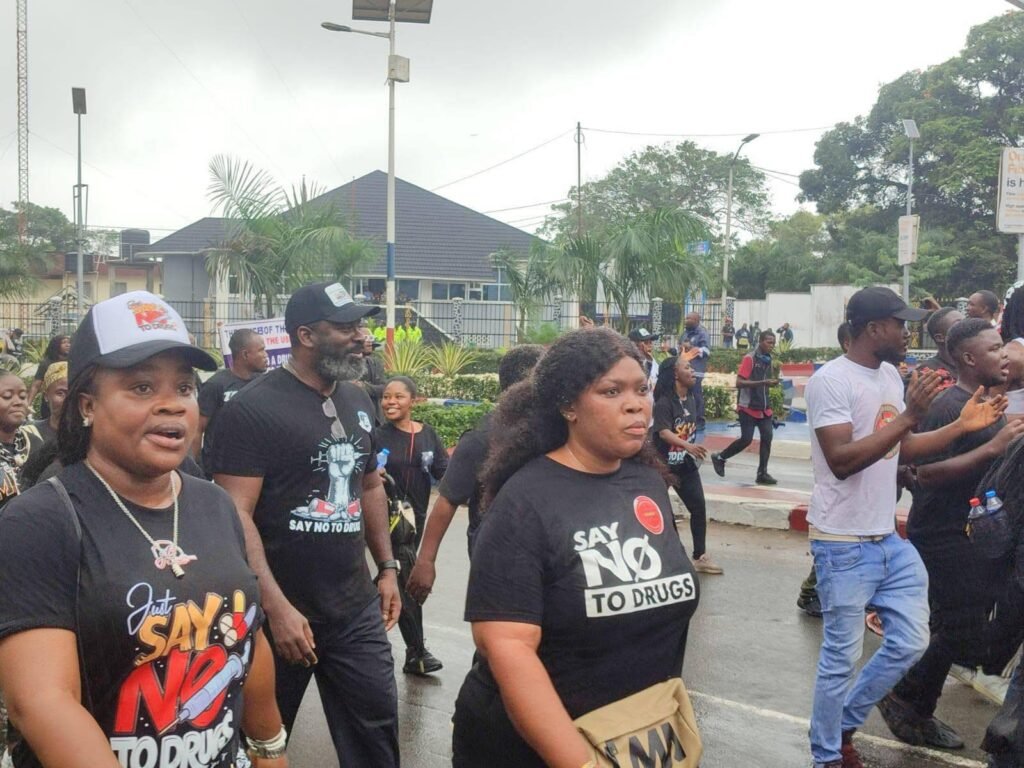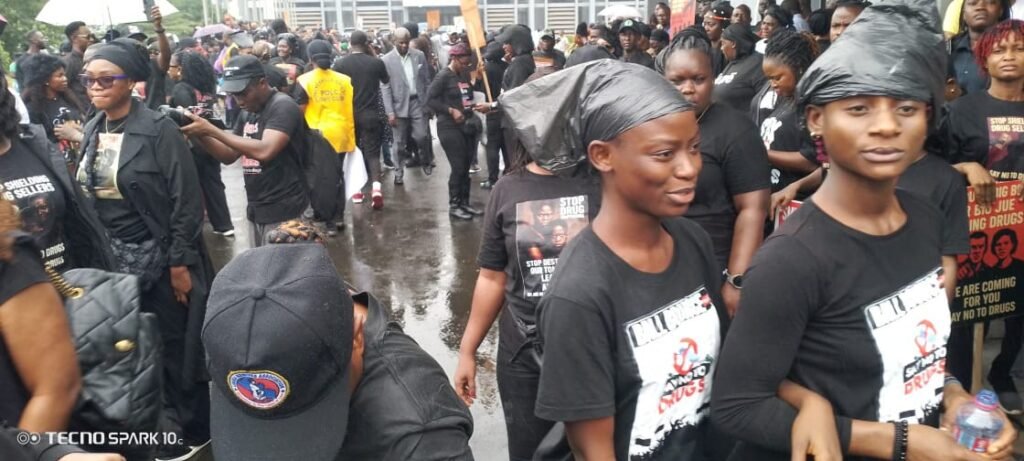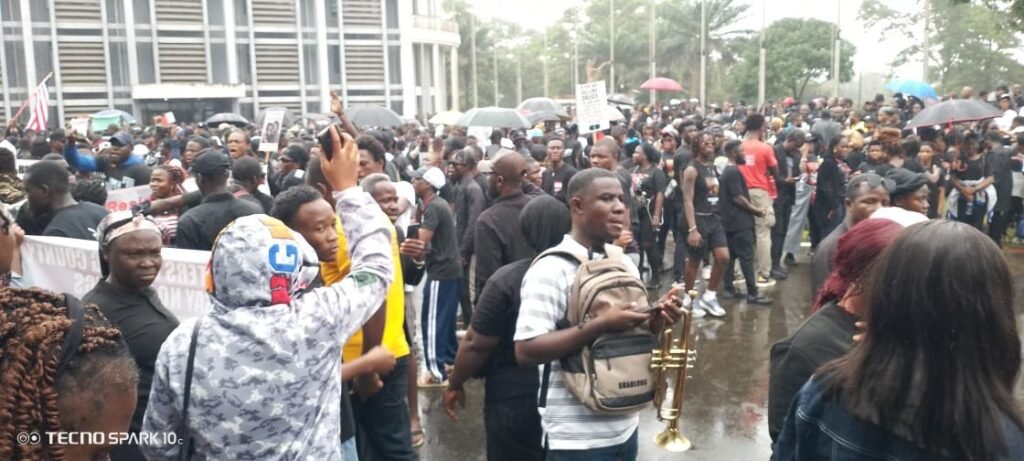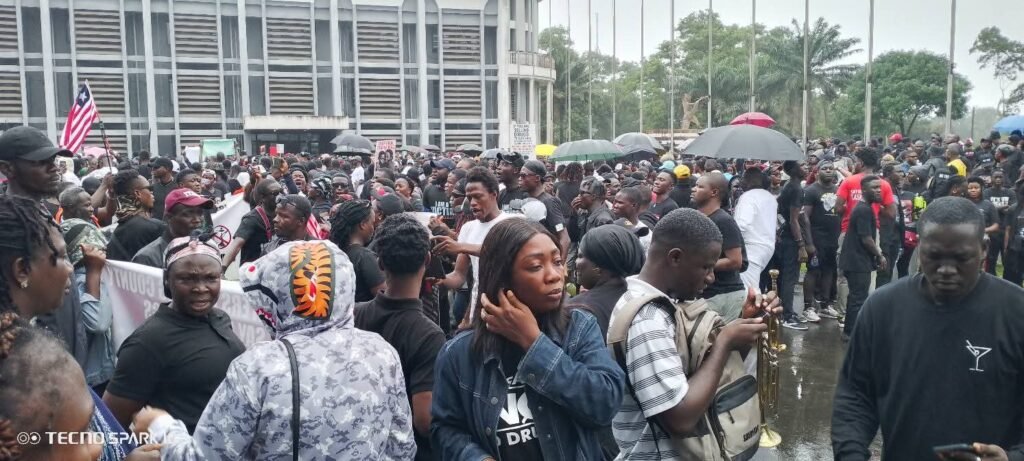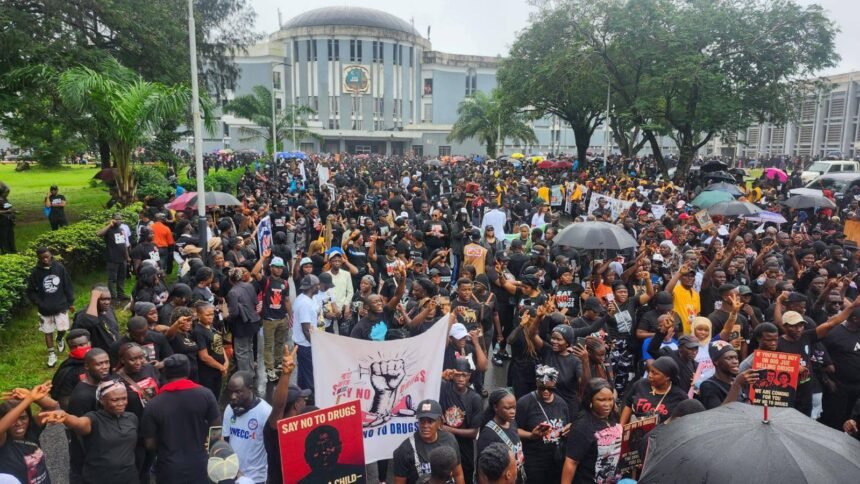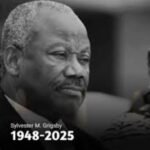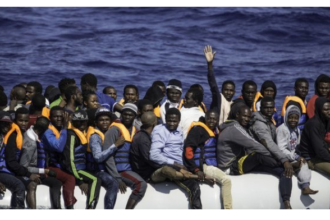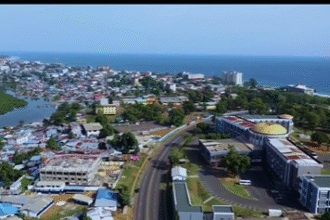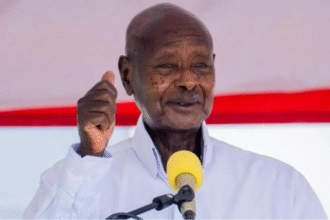By Sara Camara
Monrovia, Liberia – The Monrovia City Corporation (MCC) in partnership with several groups across the city have unleashed a comprehensive “war on illegal drugs and substance abuse,” marked by a massive “Anti-Drug” awareness march that drew thousands of participants on Thursday, August 7, 2025. The initiative, spearheaded by Mayor John-Charuk Siafa, signals a concerted effort to rid Liberia of the devastating impact of illicit substances.
Mayor Siafa personally led MCC employees in the “Say No to Drug” campaign, emphasizing the urgent need for a united front against illicit drugs across Monrovia and the entire nation. His vision for the city is one of a “clean, green, and safer city with a healthy population engaged in legal businesses, not a wasted young generation in drugs.”
The Mayor extended profound appreciation to all Liberians who joined the clarion call against the drug menace, particularly extolling His Excellency President Joseph Nyuma Boakai, Sr. President Boakai recently issued a Special Presidential Statement, announcing an aggressive, multi-prong National Anti-Drug Action Plan. The President described the proliferation of drugs as “an attack on our future” and reaffirmed his unwavering commitment to safeguarding Liberia’s youth, communities, and future generations from the scourge of substance abuse.
“We cannot allow the spread of illicit drugs to turn our children into victims, our communities into ghettos, and our neighborhoods into shelters for criminal elements,” President Boakai declared, according to an Executive Mansion-Liberia release. Mayor Siafa stressed that the President’s powerful message should inspire every Liberian to consider the fight against drugs as a shared responsibility.
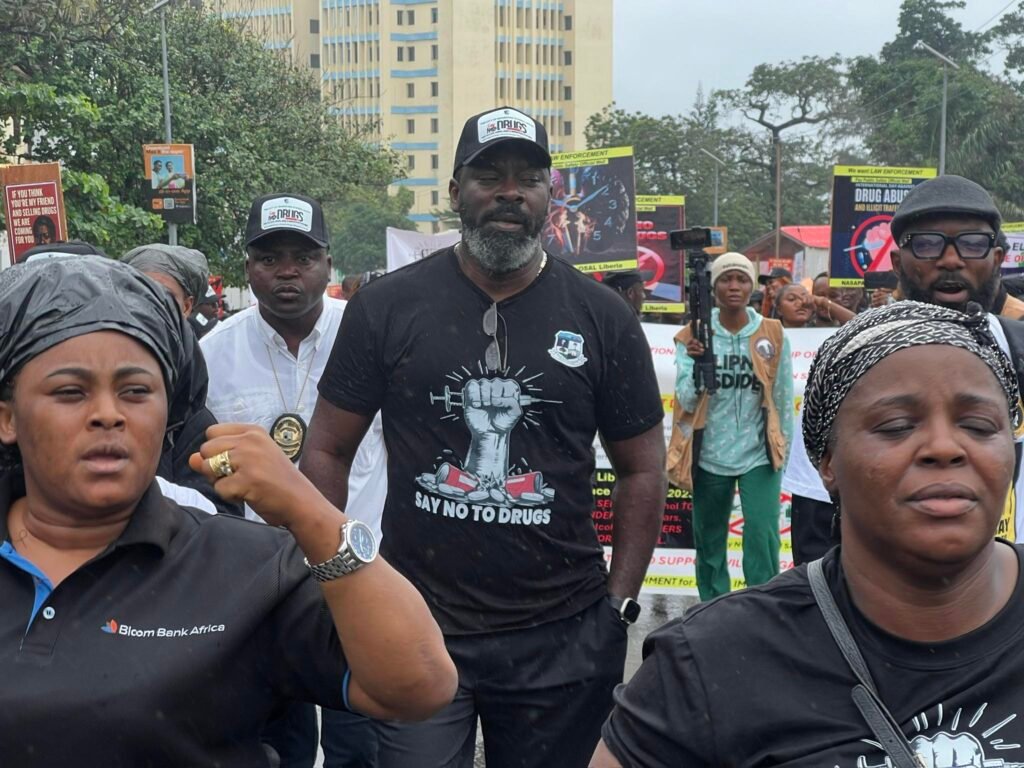
The fight against substance abuse is critical, as it is widely recognized as a key factor contributing to increased interpersonal violence, sexual risk-taking, violent crime, and other societal problems in Liberia, as highlighted by various studies (e.g., Harris et al. 2011; Cheng 2009). Its far-reaching effects on families include significant emotional burdens—such as anger, frustration, anxiety, fear, worry, depression, shame, and guilt—alongside substantial economic strain.
Confronting the issue’s pervasive nature, Monrovia City Manager Jones N. Williams underscored the intrinsic link between drug abuse, mental illness, and homelessness. “In Liberia and Monrovia to be specific, we will not end homelessness without addressing drug abuse and mental illness,” Williams stated, emphasizing that “this is a matter of life and death, and Mayor John Charuk Siafa and the Monrovia City Council are committed to addressing the drug problems facing the city and its environs with the backing of His Excellency the President of the Republic of Liberia.”
A core component of the City Hall and City Government Comprehensive Programme Implementation Plan involves the rehabilitation of young Liberians, transitioning them from the streets into treatment, and eventually facilitating community integration and employment for self-sufficiency. “This is an emergency, and we are treating it as such. Together – with leaders in the city, counties and at the national level – we will come together to develop and implement treatment solutions for the unhoused,” Williams added. He noted the city’s opportunity and responsibility to combat the opioid and cocaine epidemic and connect more struggling young people to essential support.
The impactful march concluded at the Capitol Building, the seat of the Liberian legislature, and witnessed the enthusiastic presence of top Liberian musicians, athletes, businesspeople, and civil society members, signifying a broad national unity against the drug scourge.
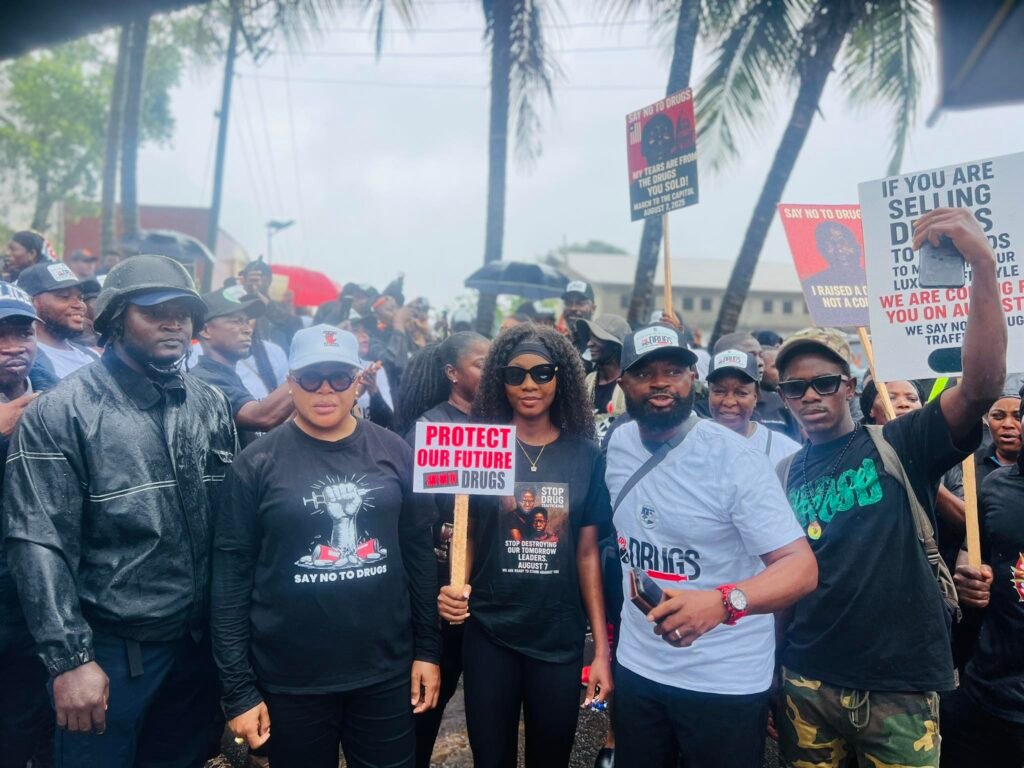
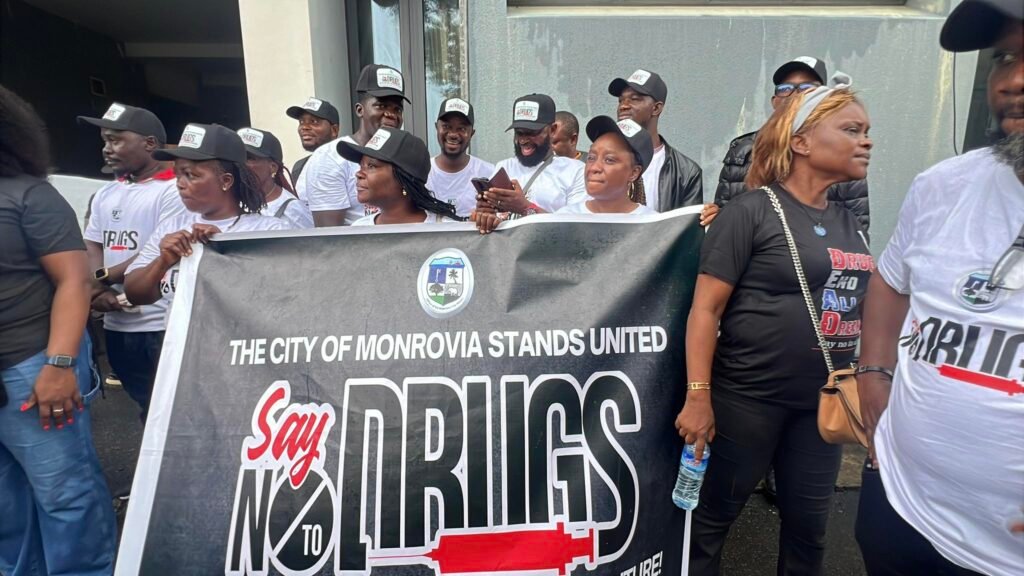
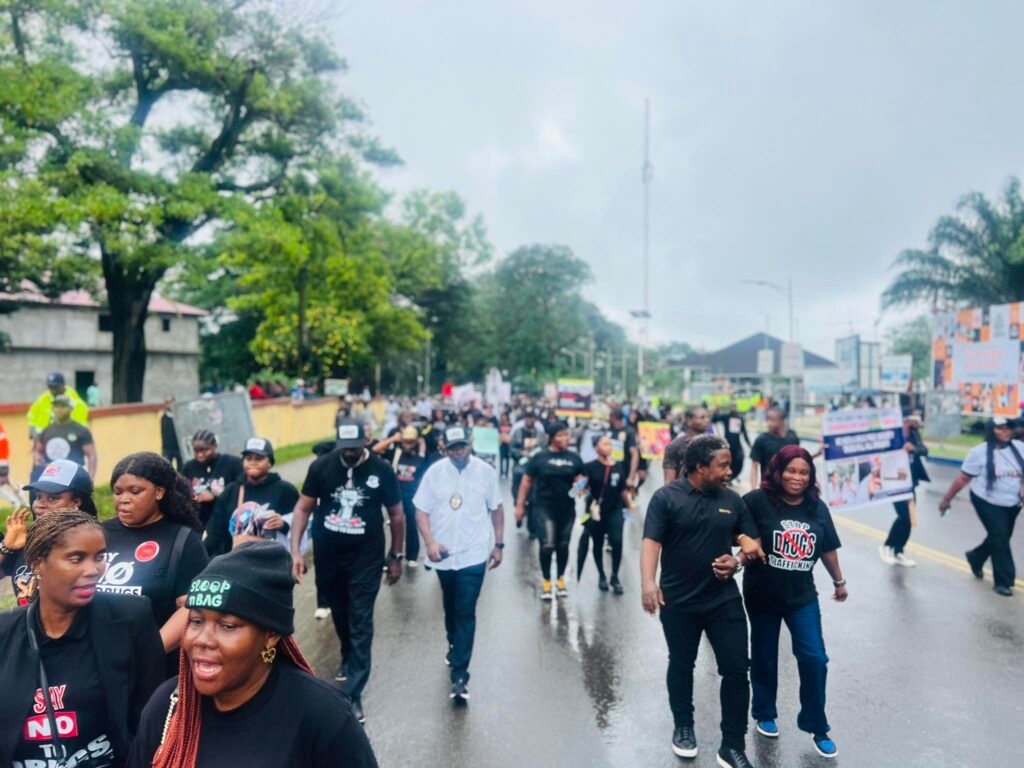
Photos of marchers in the streets of Monrovia
